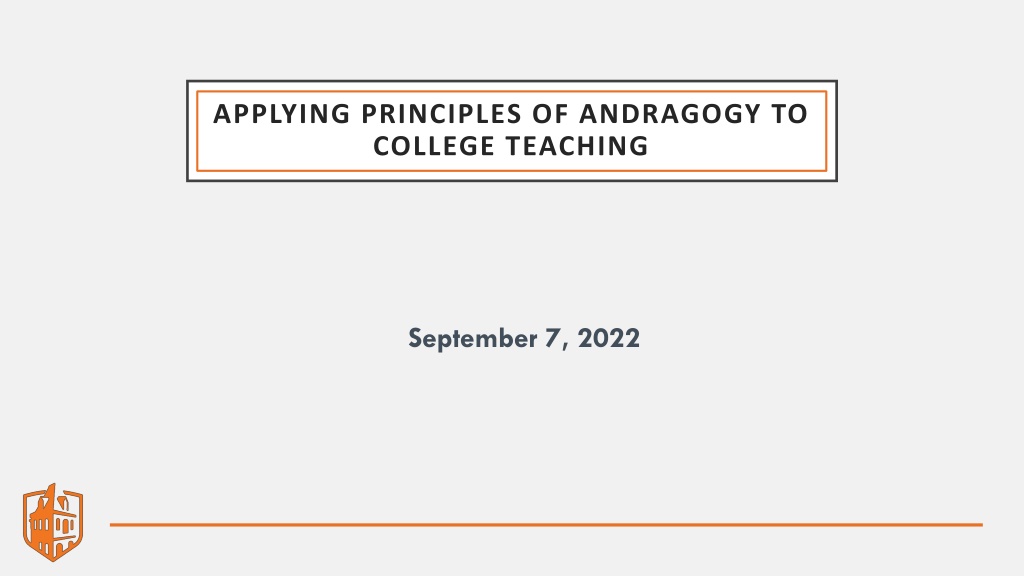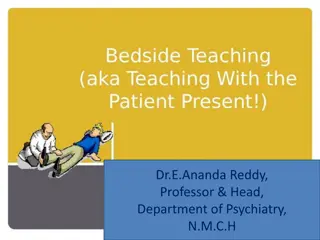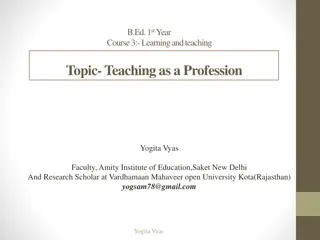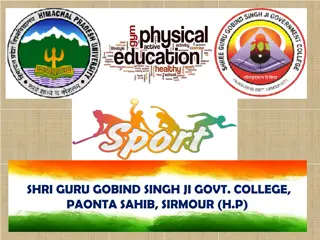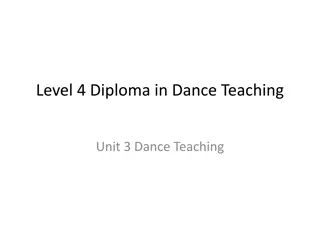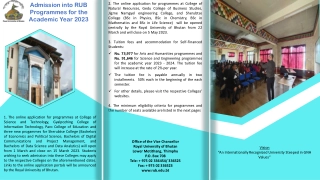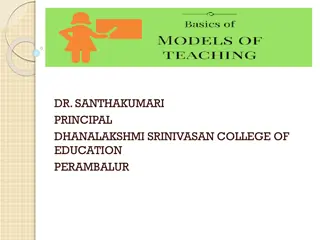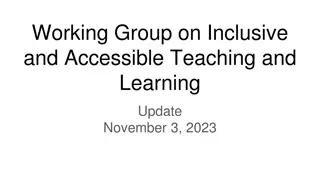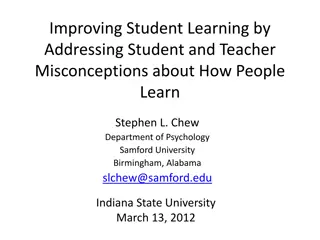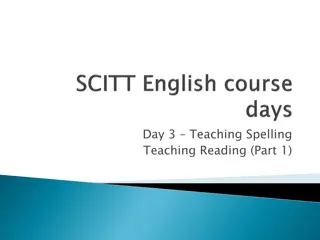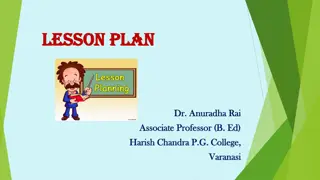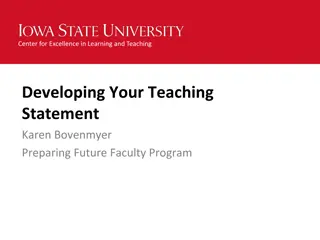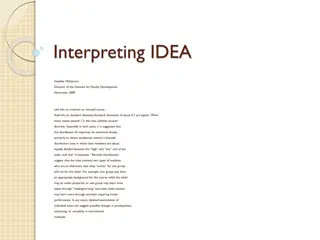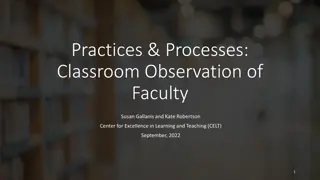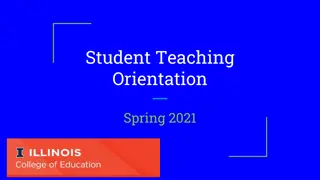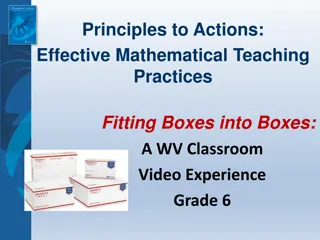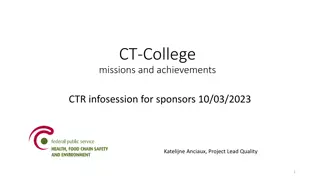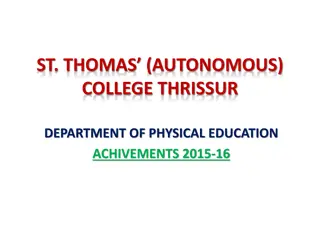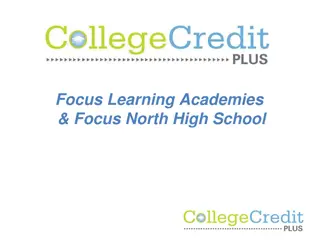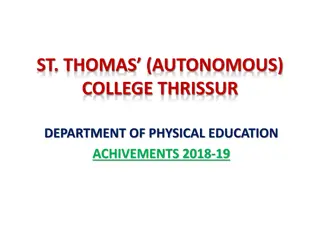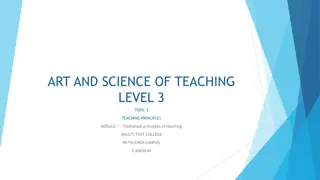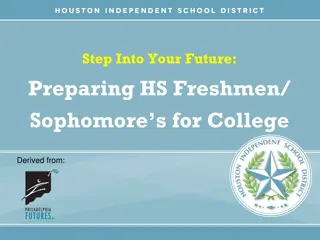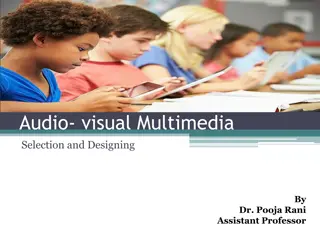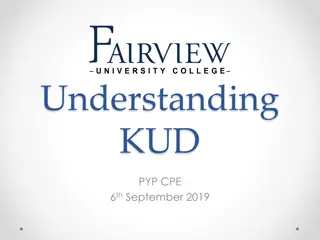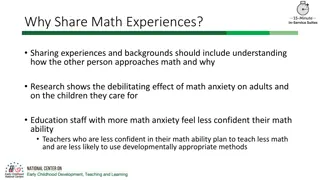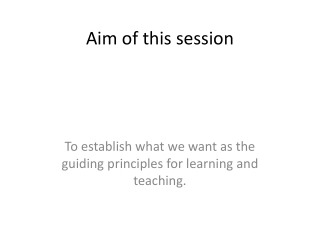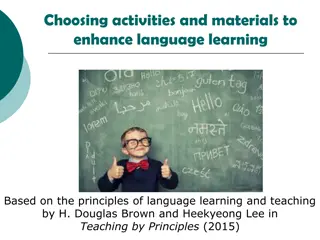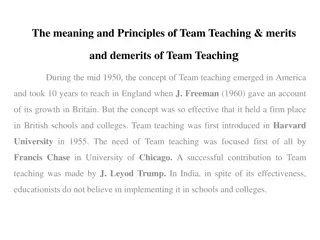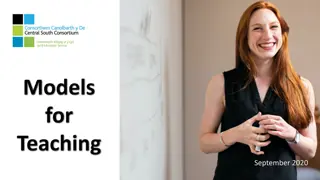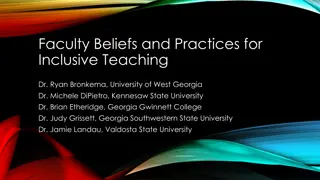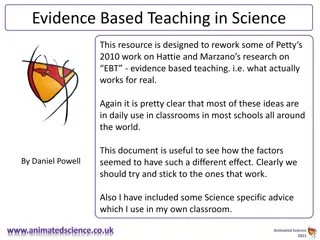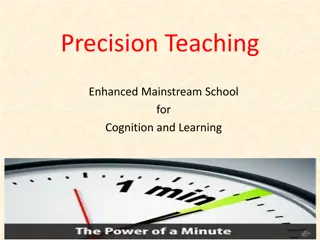Understanding Andragogy Principles for Effective College Teaching
Explore the application of key theories of andragogy, including those of Malcolm Knowles and David Kolb, in college teaching. Discover the importance of experience-driven learning, immediate content relevance, and problem-centered approaches. Learn how to integrate these principles into your teaching, design engaging activities, and foster a learner-centered environment to enhance student engagement and understanding.
Download Presentation

Please find below an Image/Link to download the presentation.
The content on the website is provided AS IS for your information and personal use only. It may not be sold, licensed, or shared on other websites without obtaining consent from the author. Download presentation by click this link. If you encounter any issues during the download, it is possible that the publisher has removed the file from their server.
E N D
Presentation Transcript
APPLYING PRINCIPLES OF ANDRAGOGY TO COLLEGE TEACHING September 7, 2022
AGENDA 1. Key theories of andragogy: 1. Knowles 2. Kolb 2. 3 other key theories Vygotsky & others 3. Application integration 4. Application in your course
KEY THEORIES - KNOWLES 1. Assumptions 2. Principles 1. Involved in planning & evaluation 2. Experience drives learning 3. Immediate relevance of content 4. Problem-centered vs. content centered
APPLICATION - KNOWLES 1. Involvement 1. They design or select activity, topics, options provide options for different skill levels 2. They create / modify rubric 3. They design quiz questions 4. Self evaluation 2. Experience drives learning 1. Ground topic in experience 2. Compare/contrast experiences
APPLICATION - KNOWLES 3. Immediate relevance of content 1. Ask or survey about experience past or future, personal or career. 2. Role play you are an intern 3. Plan use / transfer 4. Problem-centered vs. content centered 1. Provide a reason to learn (e.g., programming) 2. Cases, scenarios, simulations, failure examples, work tools, websites, group projects
COURSE APPLICATION - KNOWLES 1. ID a concept, skill or process your students struggle with mastering. 2. Pick one of these principles to adopt
APPLICATION - KOLB 1. After the experience 2. Reflect/observe describe what happened. What worked/didn t work? Self assessment. Share / pool knowledge 3. Abstract What did we learn? Why did it happen? Analyze causes. 4. Plan future application in career; in life 1. Predict what will be on exam
COURSE APPLICATION - KOLB 1. ID an experience your students have where they don t master or retain what you want 2. Adopt some of the techniques from Kolb s steps
APPLICATION - ZPD 1. 2. 3. 4. 5. 6. If below ZPD: break into chunks or steps Assign problem-solving tasks Use groups have them help one another Survey students about skills/knowledge Self-assessment of skills/knowledge Assign early task to gauge their skills x
APPLICATION - SCAFFOLDING Provide cues, clues, elaborations, clarification, suggestions, reminders Provide prompts, questions, probes, requests, redirection Provide simplified solutions Provide emotional support, encouragement Provide role modeling Focus attention Encourage self-monitoring, reflection Remove supports over time
APPLICATION SCAFFOLDING P. 2 Break complex tasks into pieces, provide feedback on each step (e.g., research paper: topic; question; article summaries; outline; sections of paper) Peer feedback building to instructor feedback Pacing / process should be flexible, individualized
APPLICATION COGNITIVE APPRENTICESHIP Break complex task into smaller chunk House in realistic situation More experienced people give guidance, hints, reminders, coaching Paired feedback, small group feedback Post-activity description of action, outcome and self- evaluation
APPLICATION VYGOTSKY, ET AL. 1. ID an experience your students have where they don t master or retain what you want 2. Adopt some of the tactics of ZPD, scaffolding, or cognitive apprenticeship
ALL APPLICATION IDEAS Students design or select activity, topics, options Students create / modify rubric Students design quiz questions Self evaluation Ground topic in personal experience Compare/contrast experiences Ask or survey students about experience Role play Plan use of skill / transfer Provide a reason to learn (problem-solve in realistic context) Cases, scenarios Simulations Failure examples Work tools, websites Group projects
ALL APPLICATION IDEAS P.2 Reflect/observe Self assessment. Share / pool knowledge Abstract and analyze. Plan future application in career; in life Predict what will be on exam If below ZPD: break into chunks or steps Assign problem-solving tasks Survey students about skills/knowledge Self-assessment of skills/ knowledge Assign early task to gauge their skills Provide cues, clues, elaborations, clarification, suggestions, reminders Provide prompts, questions, probes, requests, redirection Provide simplified solutions
ALL APPLICATION IDEAS P.3 Provide emotional support, encouragement Provide role modeling Focus attention Encourage self-monitoring, reflection Remove supports over time Peer feedback building to instructor feedback Pacing / process should be flexible, individualized Paired feedback, small group feedback Post-activity description of action and outcome
APPLICATION OF ANDRAGOGY Group activity: 1. Share a new challenging topic/process/skill to teach. 2. Peer support: make a suggestion of ideas for how to approach this challenge.
THANK YOU! Beth Rubin brubin@campbell.edu
